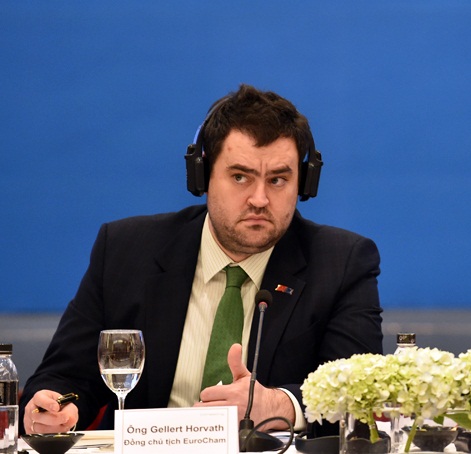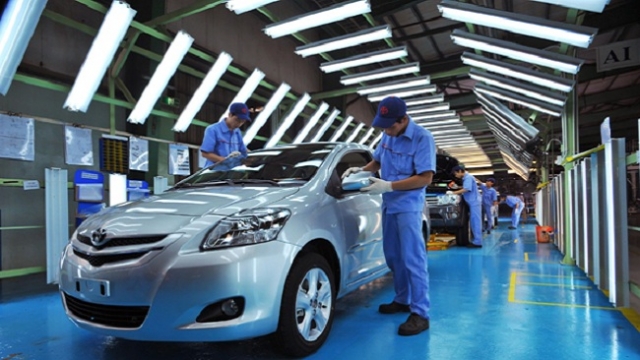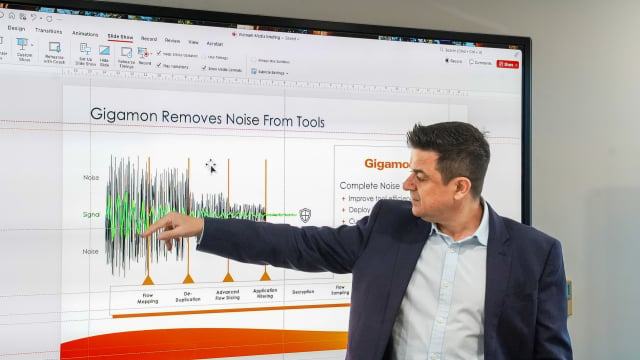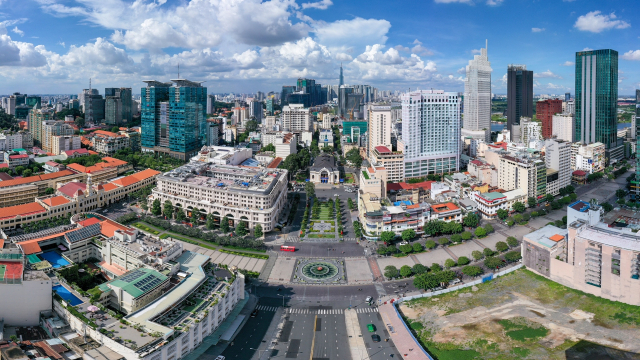Leader Talk
Decree No.116 still puts burden on European automotive enterprises
According to European Chamber of Commerce in Vietnam (EuroCham), Vietnam should conduct appropriate solutions to cut costs and administrative workload for automotive enterprises, aligning with the target of administrative reform in Vietnam as well as the objectives and principles of the EU - Vietnam Free Trade Agreement (EVFTA).
.png)
Recently, Vietnam’s automobile market has attracted a lot of attention when the two new regulations of the Government have been issued and come in to effect. These regulations include Decree No. 116/2017/ND-CP of the Government dated 17 October 2017 on requirements for manufacturing, assembly and import of motor vehicles and trade in motor vehicle warranty and maintenance services (Decree 116) and Circular 03 guiding the implementation of Decree 116.
These regulations have been seen as the obstacles for the CBU (Completely Built Up)-based businesses, which represent most of the European industry in the sector.
TheLEADER had a talk with Co-chairman of European Chamber of Commerce in Vietnam (EuroCham) Gellert Horvath about this issue.
Could you please share with us the activities of EU automotive enterprises in and to Vietnam?
Gellert Horvath: The EU has a historic relationship with Vietnam in this industry, and it is this continuity that is behind the EU’s import market share of around 10 per cent. The EU as a destination for Vietnam’s exports is also around 10 per cent. A 2017 study published by the Economic Research Institute for ASEAN and East Asia described import items from the EU as mainly finished vehicles (CBU).
Vietnam, on the other hand, mainly exports to the EU wire harness, electrical lighting, and some engine components. The niche presence of EU companies in the automotive industry in Vietnam is, however, solid, with the consolidated operations of Mercedes-Benz and Piaggio in the lead when it comes to manufacturing.
Up until recently, EuroCham members and other EU companies in this industry stood by with high expectations to possibly increase investment and expand operations. This optimism was prompted by the commitments that Vietnam undertook in the signing of the EU - Vietnam Free Trade Agreement (EVFTA) which is expected to come into force in 2018. The EVFTA clauses state that both parties will gradually reduce tariff barriers over a 10-year timeframe, with Vietnam gradually allowing duty-free imports from the EU over a period of 9 years.
EuroCham’s Mobility Sector Committee includes some of the leading European automotive companies operating in Vietnam. The perception is that business is strong and European corporations stand fast in their belief in Vietnam as a potentially significant market and production base.
However, companies expect Vietnam would enact the changes necessary to eliminate unnecessary barriers to trade, investment and to doing business in the automotive industry so that they can progress. Moreover, Vietnam’s insistence on issuing new regulations which in fact hinder the effort to eliminate trade and investment barriers will not help the sector, including national and international businesses, to advance.
What is your opinion about the Decree No. 116/2017/NÐ/CP which have been seen as obstacles for the import of cars to Vietnam?
Gellert Horvath: Decree 116/2017/ND-CP of the Government dated 17 October 2017 on requirements for manufacturing, assembly and import of motor vehicles and trade in motor vehicle warranty and maintenance services (Decree 116) sets stricter conditions on automobile import to protect local production.

Official importers, including European companies, initially welcomed this Decree and the new conditions it enforces in the automotive sector. However, the timing of the implementation of these requirements places a decree of discrimination against CBU (Completely Build Up)-based businesses, which represent most of the European industry in the sector. The Decree states that new imports are to be the subject of new requests for inspection and associated administrative work.
These new technical requirements place an unprecedented burden upon automotive companies and were established without sufficient implementation lead time, which is required in one form or another as a guiding principle in WTO commitments and Free Trade Agreements (FTAs).This was not done by the Vietnamese authorities.
How have the regulations in Decree No. 116 influenced businesses?
Gellert Horvath: In terms of regulation related to CBU homologation lot by lot, Decree 116 regulates that CBU imports are required to pass homologation tests (emission and safety) for every shipment. This means that a similar vehicle to one imported in a different shipment, possibly just a few days earlier, needs to be tested again. The new regulation will increase homologation costs and time for businesses. The cost of testing for each lot, for just one model, will be around US$10,000, according to VAMA’s petition letter to the Government.
The new homologation process is set to require up to two months, during which not a single vehicle from the same shipment can be sold. Together, this leads to sizeable financial costs for businesses, forcing vehicle prices up. In early 2018, there was still no sign of a testing capacity increase from the Vietnam Registry to accommodate, in Hanoi, entire fleets of each model sent by each importer, for each and every ship docking in Vietnam.
Decree 116 also requires all models to obtain a Vehicle Type Approval (VTA) certification issued by the authorities of the exporting country. VTA certifications show that the vehicle meets the standards of the country in which it will be sold and is normally issued by domestic entities of the importing country.
In practice, automotive certifying authorities test vehicles according to their country specifications. This includes the EU. They are not in a position to test vehicles for export markets with each export country specifications. For Vietnam to issue such a requirement is contrary to WTO Agreements on Technical Barriers to Trade (TBT).
In terms of regulation related to CKD component parts, Decree 116 states that CKD components are to be tested in Vietnam. These include safety parts, tires, lamps, mirrors, glass, wheels and fuel tanks. That means parts imported from the EU with UNECE/ECE certificates or test reports will no longer be eligible for test exemption unless the certificate or test report provided is from a country which has signed a Mutual Recognition Agreement (MRA) with Vietnam.
This is despite the fact that Vietnam National Technical Regulations on Safety and Environmental Protection for Automobiles are referred to UNECE/ECE standards and regulations. The new regulation will increase homologation costs and time for businesses.
Has Circular 03 guiding the implementation of Decree 116 helped to solve these problems?
Gellert Horvath: Circular 03 released recently by the Ministry of Transport confirmed new rules below that may also hinder imports of cars to Vietnam.
Firstly, new after-sales certification requirements on workshop tools must be met by companies for the audit to be successful and for them to be awarded the new Car Import Permit.
Also, the new homologation of each different model in each separate shipment generates significant additional costs and delay.
Do you have any recommendation for the Government of Vietnam and relevant authorities?
Gellert Horvath: Regarding the homologation tests mentioned above, EuroCham recommends that the Government considers and accepts existing homologation procedures with no requirement for testing again the same imported vehicle type.
Such testing and retesting is even more unnecessary for European-made vehicles as Vietnam National Technical Regulations on Safety and Environmental Protection for Automobiles refer to United Nations Economic Commission for Europe (UNECE/ECE) standards and regulations for vehicles, as well as automotive components for assembly.
Also, the Government keeps the current practice of accepting UNECE/ECE certificates for parts that completely align with existing Vietnam National Technical Standards. For imported parts and equipment, a valid UNECE/ECE-type approval and/or test report attached to a product should be considered sufficient evidence of a valid certificate.
This will help businesses to cut costs and administrative workload, aligning with the target of administrative reform in Vietnam as well as the objectives and principles of the EVFTA, namely promoting mutual recognition and eliminating and preventing non-tariff barriers to bilateral trade. If these requirements are implemented in the way they were announced, the European automotive business in Vietnam will suffer a negative impact.
EuroCham understands the rationale of these measures, but believes that a more appropriate solution can be found; one which can allow for an improvement of the business environment so that these businesses can better contribute to the advancement of Vietnam.
Thank you so much!
“New barrier” on automobile import
Vietnam turns semiconductor vision into action
The global semiconductor industry is being reshaped by geopolitical tensions, shifting supply chains, and the surge of digital technologies.
Cutting red tape in APA approvals to speed up tax negotiations
The change in APA approval authority is expected to shorten processing time and enhance business proactiveness in international tax negotiations.
Enterprise cybersecurity is under threat from the inside
As hybrid cloud systems grow more complex, Vietnamese enterprises are struggling to detect cybersecurity threats moving laterally within their own networks.
Breakthrough for the international financial center ambition
The submission of the draft resolution on Vietnam’s international financial center to the National Assembly heralds a new developmental era for the country.
How leadership philosophy redefines hospitality in Nha Trang
More than just running a 5-star resort, Kristian Petersen is redefining the art of hospitality with a humane and sustainable leadership philosophy.
When organic becomes an inspiring wellbeing lifestyle
For Tyna Huynh, co-founder of Drinkizz, organic is not just a food choice but a way of life that fosters a deep connection between people, nature and community.







































![[Hỏi đáp] Sàn thương mại điện tử nộp thuế thay: Ai là bên xuất hóa đơn?](https://t.ex-cdn.com/theleader.vn/192w/files/news/2025/12/03/ho-kinh-doanh-va-hoa-don-khi-ke-khai-1124.jpg)
![[Hỏi đáp] Hộ kinh doanh doanh thu bao nhiêu được miễn thuế?](https://t.ex-cdn.com/theleader.vn/192w/files/news/2025/12/03/ke-khai-thue-ho-kinh-doanh-va-nguong-mien-thue-1723.jpg)

